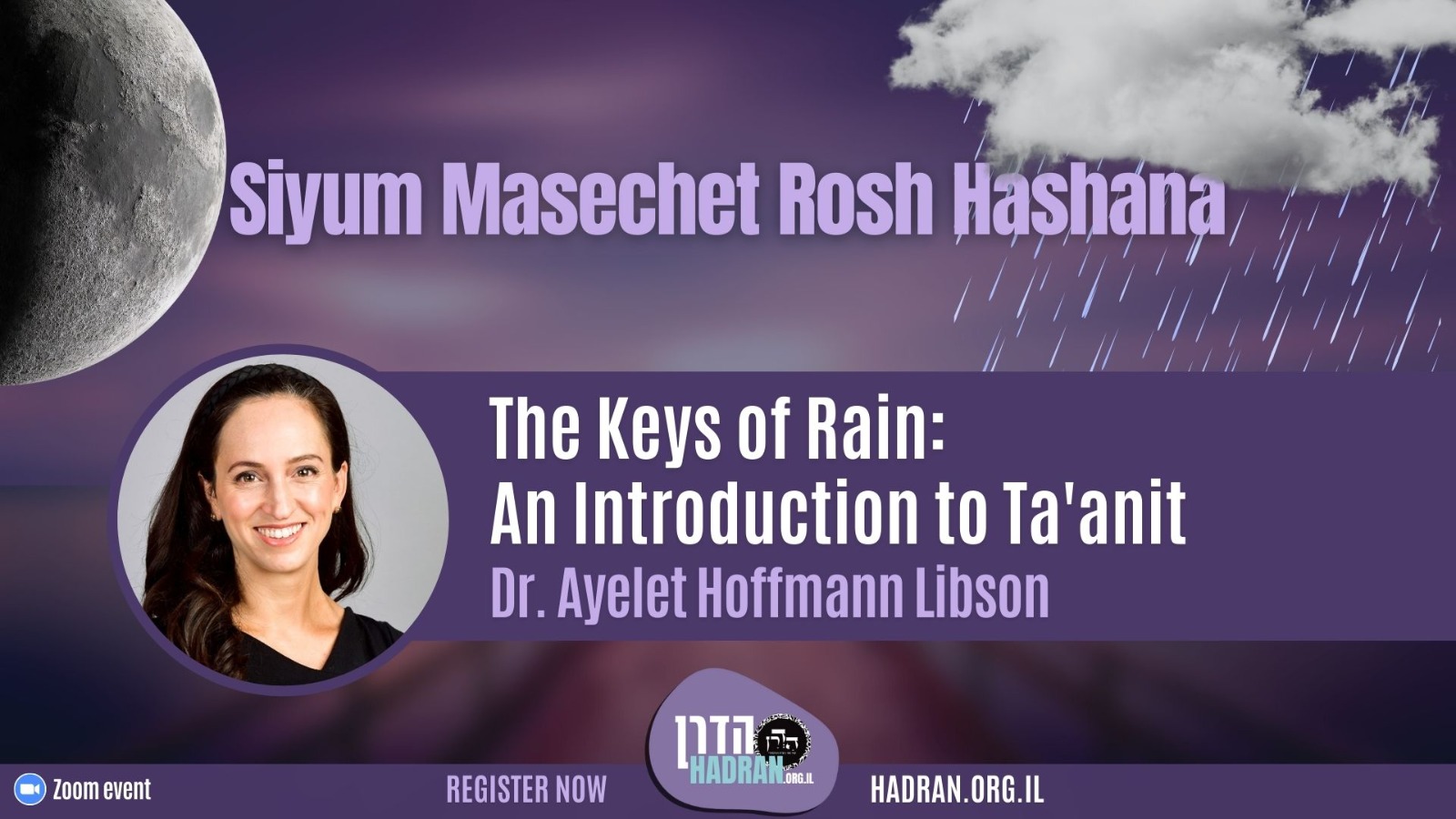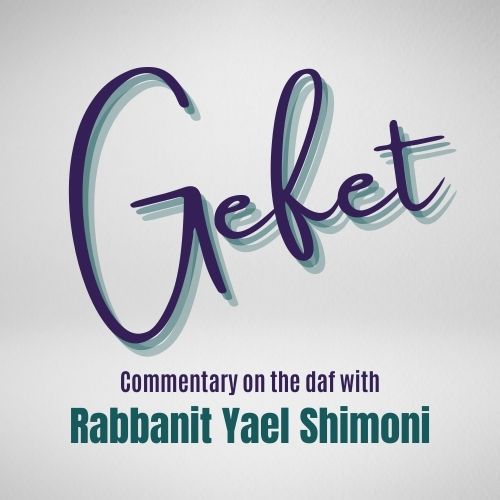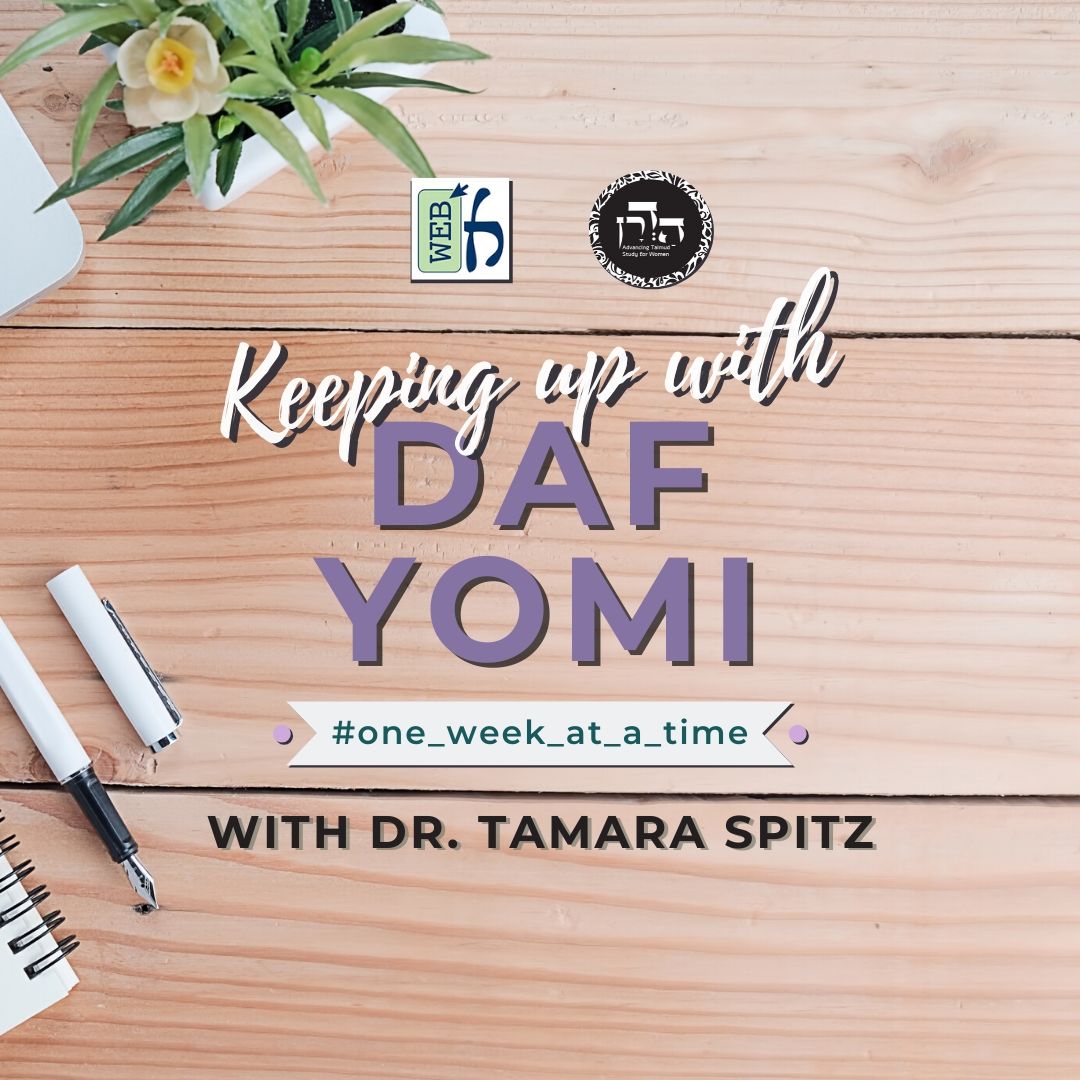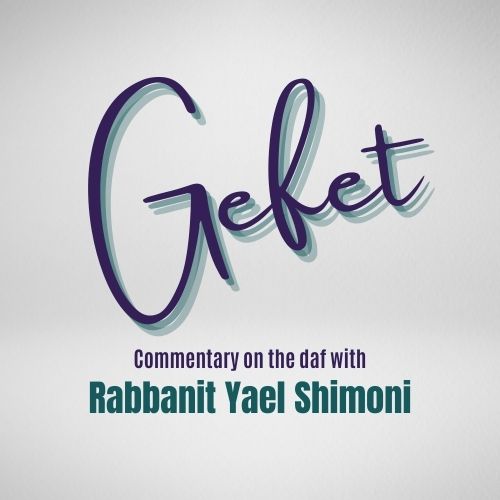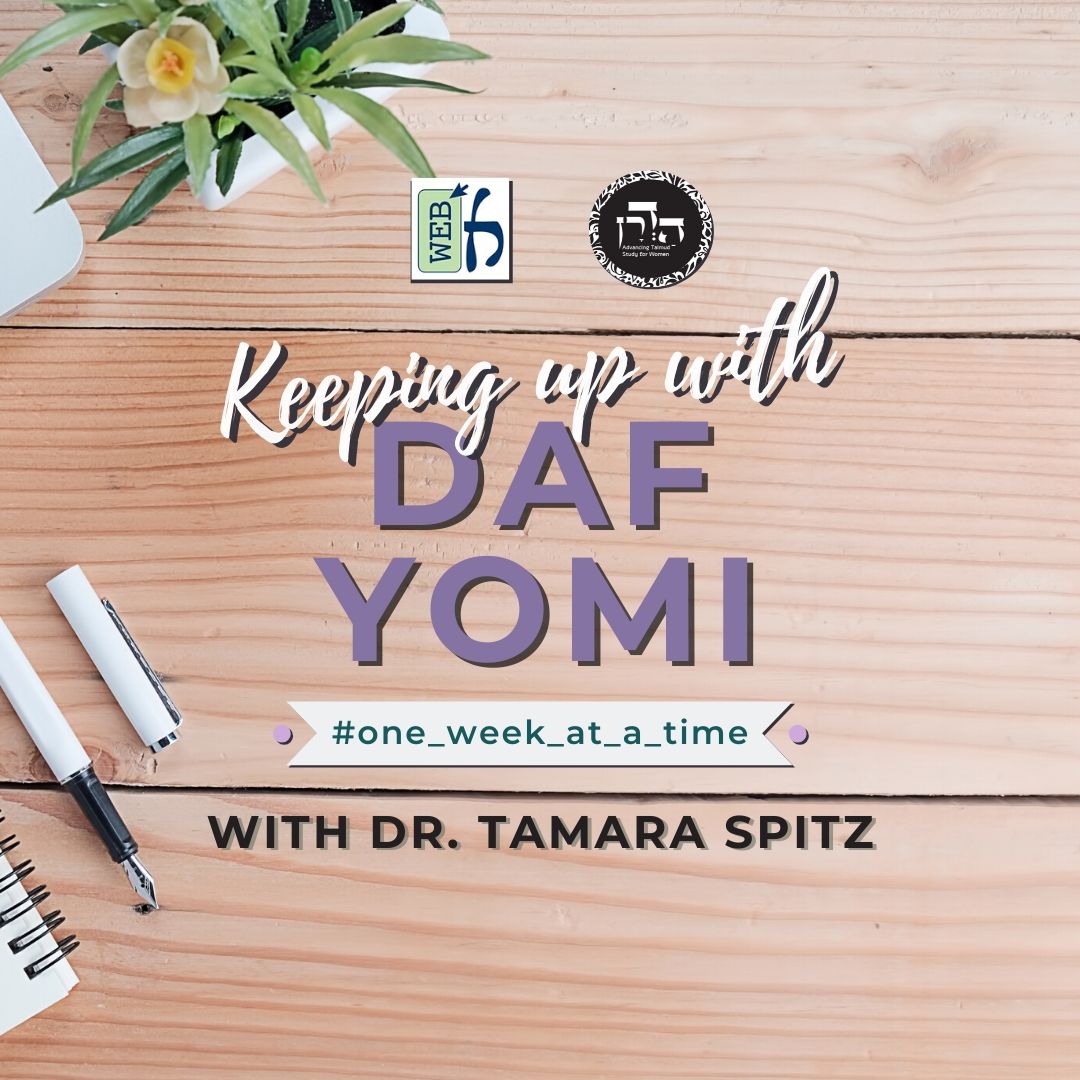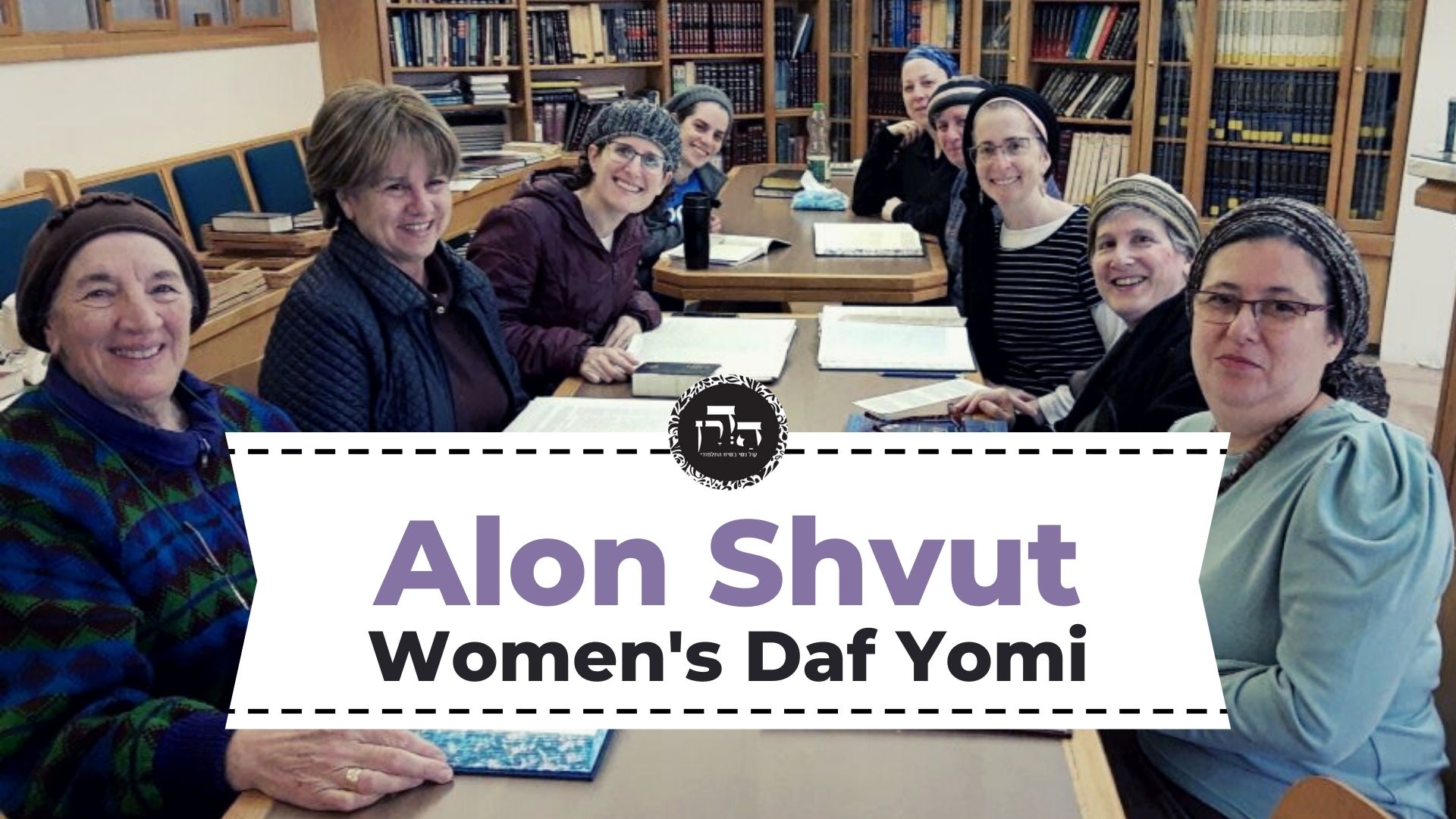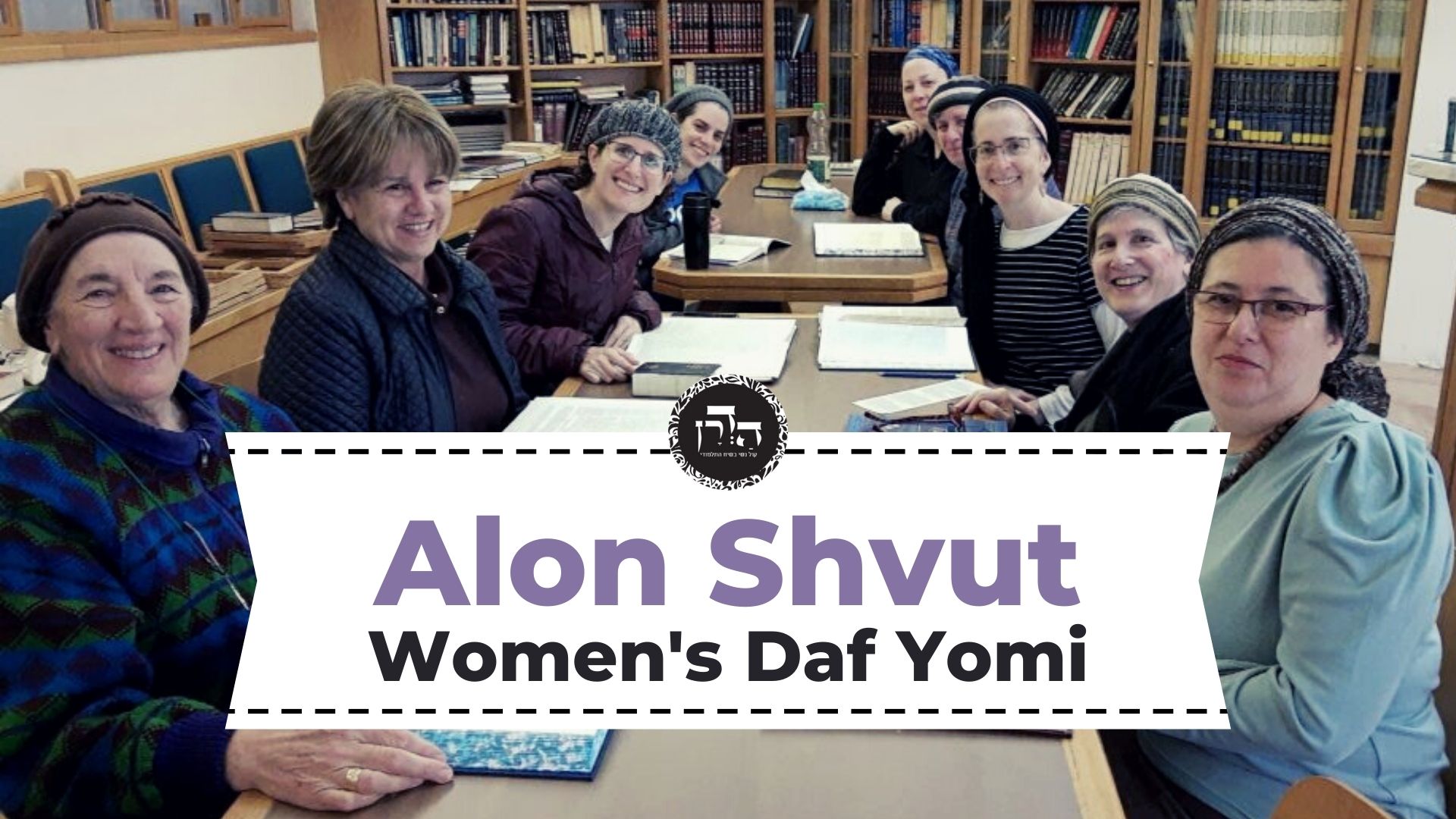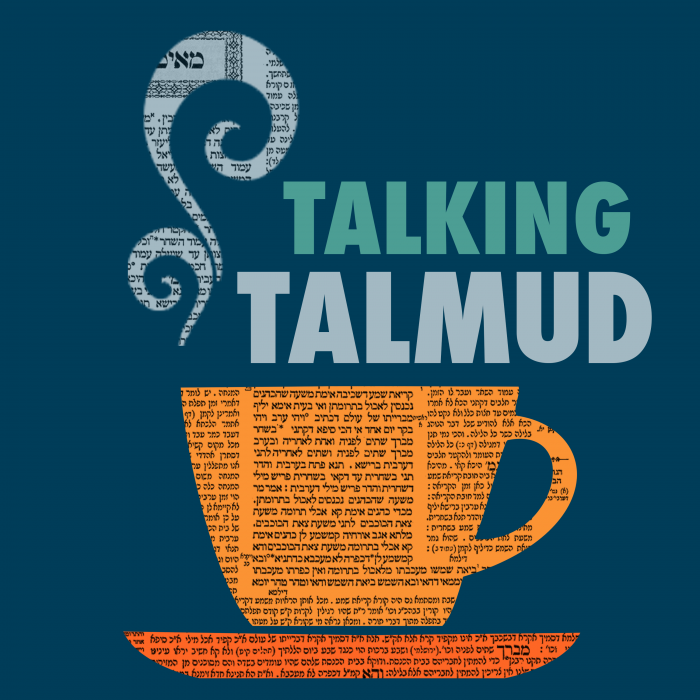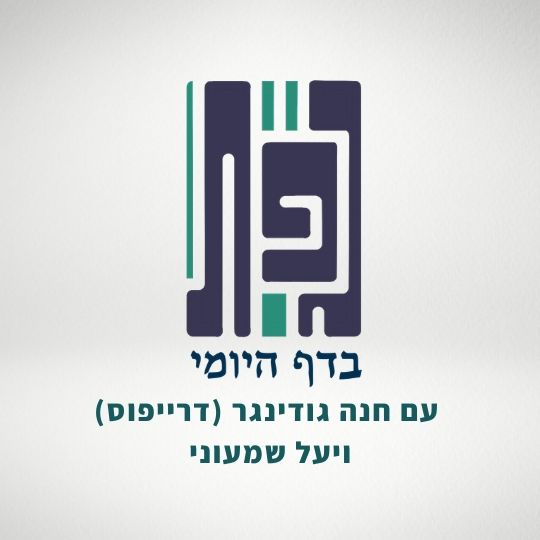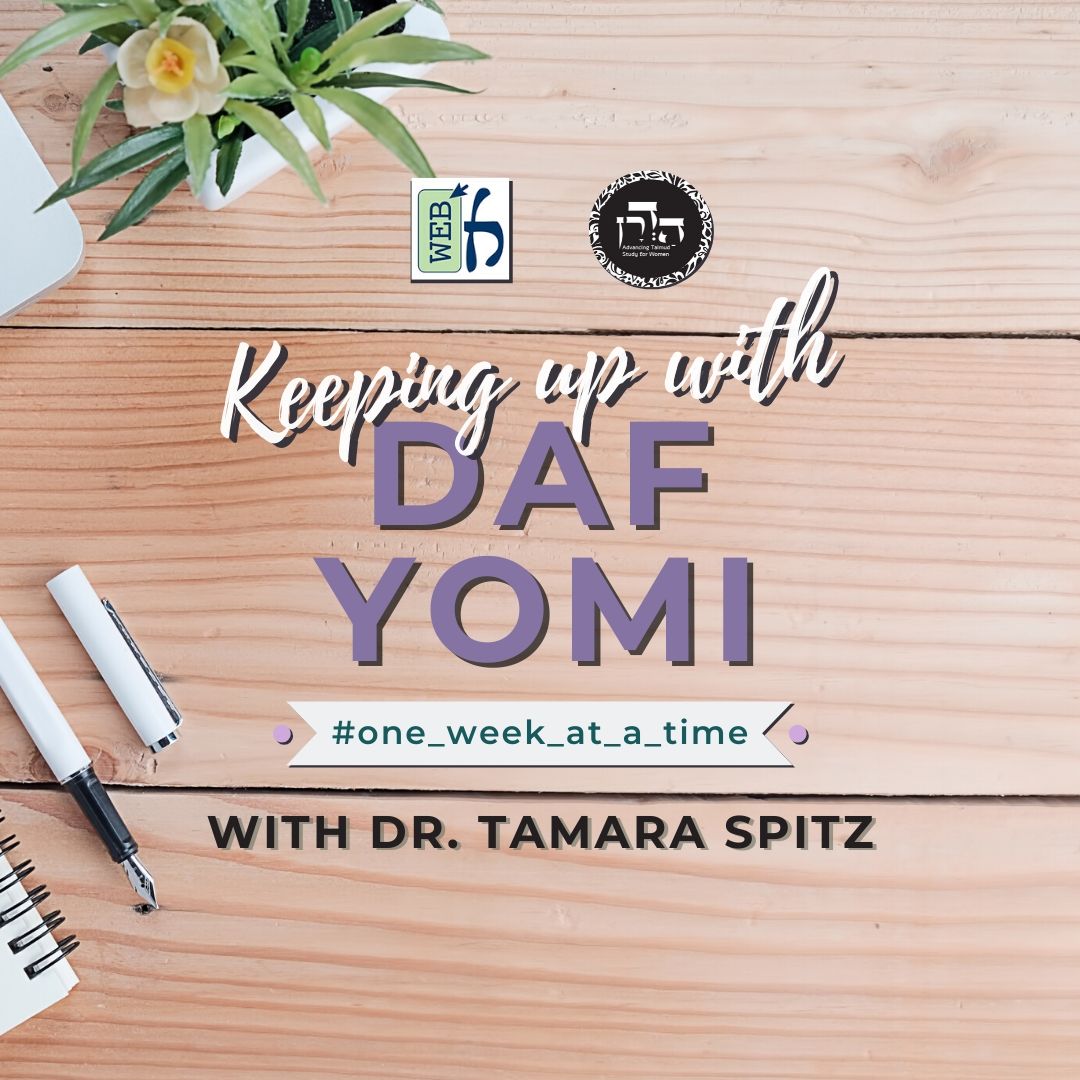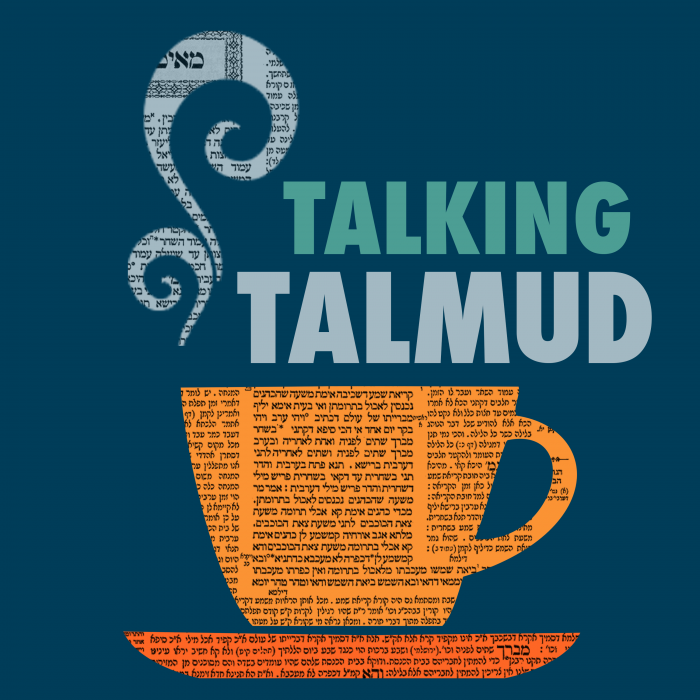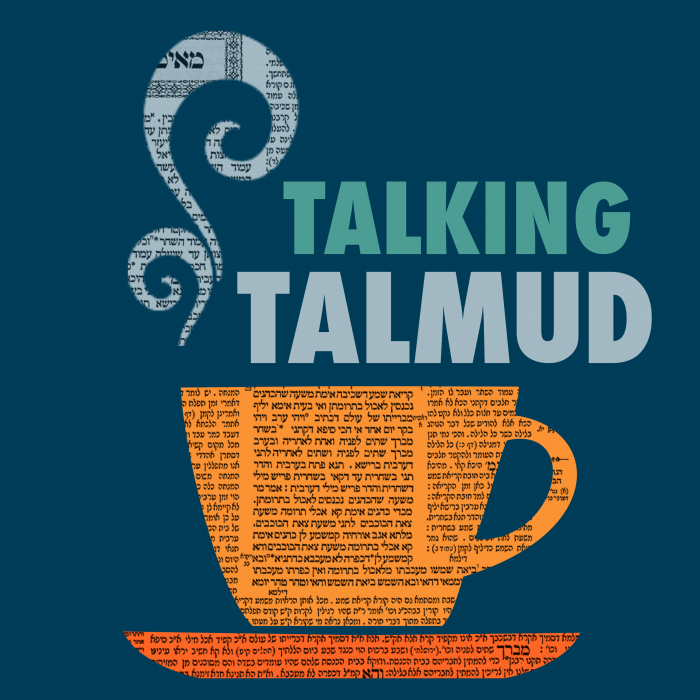Rosh Hashanah 26
מִקְצָתָן נַעֲשׂוּ עֵדִים וּמִקְצָתָן נַעֲשׂוּ דַּיָּינִין, דִּבְרֵי רַבִּי טַרְפוֹן. רַבִּי עֲקִיבָא אוֹמֵר: כּוּלָּן נַעֲשִׂין עֵדִים, וְאֵין עֵד נַעֲשֶׂה דַּיָּין.
some of them are rendered witnesses and testify before the others and some of them become judges in the case; this is the statement of Rabbi Tarfon. Rabbi Akiva says: They are all rendered witnesses, and a witness cannot become a judge. It seems therefore that the mishna contradicts Rabbi Akiva’s opinion.
אֲפִילּוּ תֵּימָא רַבִּי עֲקִיבָא, עַד כָּאן לָא קָאָמַר רַבִּי עֲקִיבָא הָתָם אֶלָּא בְּדִינֵי נְפָשׁוֹת, דְּרַחֲמָנָא אָמַר: ״וְשָׁפְטוּ הָעֵדָה״ ״וְהִצִּילוּ הָעֵדָה״, וְכֵיוָן דְחַזְיוּהוּ דִּקְטַל נַפְשָׁא לָא מָצוּ חָזוּ לֵיהּ זְכוּתָא. אֲבָל הָכָא — אֲפִילּוּ רַבִּי עֲקִיבָא מוֹדֶה.
The Gemara rejects this argument: You can even say that the mishna was taught in accordance with the opinion of Rabbi Akiva, but we must distinguish between the cases. Rabbi Akiva states his position there only with regard to cases of capital law, for the Merciful One says: “And the congregation shall judge…and the congregation shall save” (Numbers 35:24–25), which requires a court to search for grounds to exonerate the defendant, but once they themselves have seen him kill a person, they will be unable to find grounds to exonerate him. But here, with regard to the sighting of the new moon, even Rabbi Akiva concedes that a witness can be rendered a judge.
מַתְנִי׳ כׇּל הַשּׁוֹפָרוֹת כְּשֵׁרִים, חוּץ מִשֶּׁל פָּרָה — מִפְּנֵי שֶׁהוּא קֶרֶן. אָמַר רַבִּי יוֹסֵי: וַהֲלֹא כׇּל הַשּׁוֹפָרוֹת נִקְרְאוּ קֶרֶן, שֶׁנֶּאֱמַר: ״בִּמְשׁוֹךְ בְּקֶרֶן הַיּוֹבֵל״.
MISHNA: The mishna begins to discuss the primary mitzva of Rosh HaShana, sounding the shofar. All shofarot are fit for blowing except for the horn of a cow, because it is a horn [keren] and not a shofar. Rabbi Yosei said: But aren’t all shofarot called horn, as it is stated: “And it shall come to pass, that when they sound a long blast with the horn [keren] of a ram [yovel]” (Joshua 6:5), and a ram’s horn is a shofar fit for sounding on Rosh HaShana?
גְּמָ׳ שַׁפִּיר קָאָמַר רַבִּי יוֹסֵי וְרַבָּנַן: כׇּל הַשּׁוֹפָרוֹת אִקְּרוֹ שׁוֹפָר וְאִקְּרוֹ קֶרֶן. דְּפָרָה — קֶרֶן אִקְּרִי, שׁוֹפָר לָא אִקְּרִי, דִּכְתִיב: ״בְּכוֹר שׁוֹרוֹ הָדָר לוֹ וְקַרְנֵי רְאֵם קַרְנָיו״.
GEMARA: Rabbi Yosei is saying well, i.e., presents a convincing argument. Why do the Rabbis not accept it? The Gemara explains that the Rabbis counter Rabbi Yosei’s argument as follows: Indeed, all other shofarot are called shofar and they are also called keren, but that of a cow is called keren, but it is not called shofar, as it is written: “His firstborn bull, grandeur is his, and his horns [karnav] are the horns of [karnei] a wild ox” (Deuteronomy 33:17). It is therefore clear that the horns of a bull are called keren, and nowhere are they called shofar.
וְרַבִּי יוֹסֵי אָמַר לָךְ: דְּפָרָה נָמֵי אִקְּרִי שׁוֹפָר, דִּכְתִיב: ״וְתִיטַב לַה׳ מִשּׁוֹר פָּר״, אִם שׁוֹר — לָמָּה פָּר, וְאִם פָּר — לָמָּה שׁוֹר? אֶלָּא: מַאי ״שׁוֹר פָּר״ — מִשּׁוֹפָר.
And how would Rabbi Yosei counter this argument? He could have said to you: The horns of a cow are also called shofar, as it is written: “And it shall please the Lord better than an ox bull [shor par] that has horns and hoofs” (Psalms 69:32). The wording of the verse is strange: If it is an ox [shor], why is it also called a bull [par], and if it is a bull [par], why is it called an ox [shor]? Rather, what is the meaning of shor par? These two words must be read as if they were one single word: Than a shofar. According to this reading, even the horn of a cow is called a shofar.
וְרַבָּנַן? כִּדְרַב מַתְנָה. דְּאָמַר רַב מַתְנָה: מַאי ״שׁוֹר פָּר״ — שֶׁהוּא גָּדוֹל כְּפַר.
And how do the Rabbis explain the difficulty in this verse? They explain it as it was explained by Rav Mattana, as Rav Mattana said: What is the meaning of shor par? An ox [shor] that is as large as a bull [par], as the animal is called a shor from birth, but is called a par only from the age of three.
עוּלָּא אָמַר: הַיְינוּ טַעְמָא דְּרַבָּנַן, כִּדְרַב חִסְדָּא. דְּאָמַר רַב חִסְדָּא: מִפְּנֵי מָה אֵין כֹּהֵן גָּדוֹל נִכְנָס בְּבִגְדֵי זָהָב לִפְנַי וְלִפְנִים לַעֲבוֹד עֲבוֹדָה — לְפִי שֶׁאֵין קָטֵיגוֹר נַעֲשָׂה סָנֵיגוֹר.
Ulla said: This is the reasoning of the Rabbis, who say that the horn of a cow is unfit for sounding on Rosh HaShana. They say this in accordance with the opinion of Rav Ḥisda, as Rav Ḥisda said: For what reason does the High Priest not enter the innermost sanctum, the Holy of Holies, with his golden garments to perform the service there on Yom Kippur? It is because a prosecutor [kateigor] cannot become an advocate [sanneigor]. Since the Jewish people committed the sin of worshipping the Golden Calf, the High Priest may not enter the Holy of Holies to atone for the Jewish people wearing golden garments, as they would bring that sin to mind.
וְלָא? וְהָא אִיכָּא דָּם פַּר! הוֹאִיל וְאִשְׁתַּנִּי — אִשְׁתַּנִּי.
The Gemara asks: But do we not use a cow in the Holy of Holies? But there is the blood of the bull that is brought there to be sprinkled on Yom Kippur, despite the fact that the Jewish people sinned with a calf. The Gemara answers: Since it has changed, i.e., it is not the bull itself, but only its blood, then it has changed, i.e., so it does not bring the sin of the Golden Calf to mind.
וְהָא אִיכָּא אָרוֹן וְכַפּוֹרֶת וּכְרוּב! חוֹטֵא בַּל יַקְרִיב קָאָמְרִינַן.
The Gemara raises another difficulty: But there is the Ark, the Ark cover, and the cherub, all of which are plated with gold. If this is problematic, why are they in the Holy of Holies? The Gemara explains: What we are saying is that a sinner seeking atonement should not bring something made of gold into the Holy of Holies, as it would bring the sin of the Golden Calf to mind.
וְהָא אִיכָּא כַּף וּמַחְתָּה! חוֹטֵא בַּל יִתְנָאֶה קָא אָמְרִינַן.
The Gemara asks further: But there is the spoon and coal pan that are brought into the Holy of Holies, and they are made of gold. The Gemara answers: What we are saying is that a sinner seeking atonement should not adorn himself with ornaments of gold.
וְהָא אִיכָּא בִּגְדֵי זָהָב מִבַּחוּץ! מִבִּפְנִים קָא אָמְרִינַן. שׁוֹפָר נָמֵי מִבַּחוּץ הוּא! כֵּיוָן דִּלְזִכָּרוֹן הוּא — כְּבִפְנִים דָּמֵי.
The Gemara raises yet another question: But there are the golden garments the High Priest wears outside the Holy of Holies. The Gemara answers: What we are saying is that a sinner should not adorn himself with gold inside the Holy of Holies, but outside there is no concern. The Gemara continues this line of questioning: If so, the shofar is also outside, since it is not brought into the Holy of Holies. The Gemara answers: Since the shofar is sounded in order to evoke God’s remembrance, it is considered as if it were sounded inside the Holy of Holies.
וְהָא תַּנָּא ״מִפְּנֵי שֶׁהוּא קֶרֶן״ קָאָמַר! חֲדָא וְעוֹד קָאָמַר: חֲדָא — דְּאֵין קָטֵיגוֹר נַעֲשָׂה סָנֵיגוֹר, וְעוֹד — מִפְּנֵי שֶׁהוּא קֶרֶן.
The Gemara asks: Is this indeed the reason that the Rabbis disqualify the use of a cow’s horn? But the tanna taught: The horn of a cow cannot be used because it is a keren. The Gemara answers: The tanna stated one reason and also another reason: One reason is that a prosecutor cannot become an advocate, and another is because it is called a keren and not a shofar.
וְרַבִּי יוֹסֵי? אָמַר לָךְ: דְּקָא אָמְרַתְּ אֵין קָטֵיגוֹר נַעֲשָׂה סָנֵיגוֹר — הָנֵי מִילֵּי מִבִּפְנִים, וְהַאי שׁוֹפָר מִבַּחוּץ הוּא. וּדְקָא אָמְרַתְּ מִפְּנֵי שֶׁהוּא קֶרֶן — כׇּל הַשּׁוֹפָרוֹת נָמֵי אִקְּרוֹ קֶרֶן.
The Gemara asks: And how would Rabbi Yosei counter these arguments? The Gemara explains: He could have said to you: That which you said, that a prosecutor cannot become an advocate, is indeed true, but this applies only inside the Holy of Holies, and the shofar is sounded outside. And with regard to that which you said, because it is a keren, all shofarot are also called keren.
אַבָּיֵי אֲמַר, הַיְינוּ טַעְמַיְיהוּ דְּרַבָּנַן: שׁוֹפָר אָמַר רַחֲמָנָא, וְלֹא שְׁנַיִם וּשְׁלֹשָׁה שׁוֹפָרוֹת. וְהָא דְּפָרָה, כֵּיוָן דְּקָאֵי גִּילְדֵי גִּילְדֵי — מִיתְחֲזֵי כִּשְׁנַיִם וּשְׁלֹשָׁה שׁוֹפָרוֹת.
Abaye said: This is the reasoning of the Rabbis: The Merciful One says to sound a single shofar, and not two or three shofarot together, but this horn of a cow, since it is comprised of layers, looks like two or three shofarot.
וְהָא תַּנָּא ״מִפְּנֵי שֶׁהוּא קֶרֶן״ קָאָמַר! חֲדָא וְעוֹד קָאָמַר: חֲדָא — דְּשׁוֹפָר אֶחָד אָמַר רַחֲמָנָא, וְלֹא שְׁנַיִם וּשְׁלֹשָׁה שׁוֹפָרוֹת. וְעוֹד — מִפְּנֵי שֶׁהוּא קֶרֶן.
The Gemara asks: But the tanna taught: The horn of a cow cannot be used because it is a keren. Since the Rabbis’ reasoning appears clearly in the mishna, how can the reasoning provided by Abaye be correct? The Gemara replies: The tanna stated one reason and also another reason. One reason is that the Merciful One says to sound a single shofar, and not two or three shofarot together, and another is because it is a keren.
וְרַבִּי יוֹסֵי אָמַר לָךְ: דְּקָאָמְרַתְּ ״שׁוֹפָר אֶחָד אָמַר רַחֲמָנָא, וְלֹא שְׁנַיִם וּשְׁלֹשָׁה שׁוֹפָרוֹת״ — כֵּיוָן דִּמְחַבְּרִי אַהֲדָדֵי, חַד הוּא. וּדְקָאָמְרַתְּ ״מִפְּנֵי שֶׁהוּא קֶרֶן״ — כׇּל הַשּׁוֹפָרוֹת נָמֵי אִקְּרוֹ קֶרֶן.
And Rabbi Yosei could have said to you: That which you said, that the Merciful One says in the Torah to sound a single shofar, and not two or three shofarot, is not a difficulty. Since the layers of the cow’s horn are connected to each other, it is considered a single shofar. And with regard to that which you said: Because it is a keren, all shofarot are also called keren.
מַאי מַשְׁמַע דְּהַאי יוֹבֵלָא לִישָּׁנָא דְּדִכְרָא הוּא? דְּתַנְיָא, אָמַר רַבִּי עֲקִיבָא: כְּשֶׁהָלַכְתִּי לַעֲרַבְיָא, הָיוּ קוֹרִין לְדִכְרָא ״יוֹבֵלָא״.
§ It is taught in the mishna that Rabbi Yosei proves from a verse that a the horn of a ram [yovel] is called a keren. The Gemara asks: From where may it be inferred that this term yovel denotes the horn of a ram? The Gemara answers: As it is taught in a baraita: Rabbi Akiva said: When I went to Arabia, I heard that they called a ram yovla, and from this we can infer the meaning of the term yovel in the related language of Hebrew.
וְאָמַר רַבִּי עֲקִיבָא: כְּשֶׁהָלַכְתִּי לְגַלְיָא, הָיוּ קוֹרִין לְנִדָּה גַּלְמוּדָה. מַאי גַּלְמוּדָה — גְּמוּלָה דָּא מִבַּעְלָהּ. וְאָמַר רַבִּי עֲקִיבָא: כְּשֶׁהָלַכְתִּי לְאַפְרִיקִי, הָיוּ קוֹרִין לְמָעָה קְשִׂיטָה. לְמַאי נָפְקָא מִינַּהּ? לְפָרוֹשֵׁי ״מֵאָה קְשִׂיטָה״ דְּאוֹרָיְיתָא, מְאָה דַּנְקֵי.
The Gemara records a series of similar statements: And Rabbi Akiva said: When I went to Galia, I heard that they called a menstruating woman galmuda, and this clarifies the meaning of that word in Scripture. It should be understood as follows: What does galmuda mean? She is separated [gemula da] from her husband, as all physical contact between a menstruating woman and her husband is forbidden. And Rabbi Akiva said: When I went to Africa, I heard that they called a ma’a, which is a certain coin, kesita. The Gemara asks: What is the practical significance of this? The Gemara answers: To explain that the words in the Torah relating to Jacob’s purchase of his field near Shechem: “And he bought the parcel of ground where he had spread his tent, from the sons of Hamor for a hundred kesita” (Genesis 33:19), denote a hundred dankei, i.e., a hundred ma’a.
אָמַר רַבִּי: כְּשֶׁהָלַכְתִּי לִכְרַכֵּי הַיָּם, הָיוּ קוֹרִין לִמְכִירָה כִּירָה. לְמַאי נָפְקָא מִינַּהּ? לְפָרוֹשֵׁי ״אֲשֶׁר כָּרִיתִי לִי״:
Similarly, Rabbi Yehuda HaNasi said: When I went to the sea towns, I heard that they called a sale kira. And the Gemara asks: What is the practical significance of this? The Gemara answers: To explain the verse relating to Jacob’s burial plot: “In my grave which I purchased [kariti] for myself, there shall you bury me” (Genesis 50:5).
אָמַר רַבִּי שִׁמְעוֹן בֶּן לָקִישׁ: כְּשֶׁהָלַכְתִּי לִתְחוּם קַן נִשְׁרַיָּיא, הָיוּ קוֹרִין לַכַּלָּה נִינְפִי, וְלַתַּרְנְגוֹל שֶׂכְוִי. לַכַּלָּה נִינְפִי — מַאי קְרָא: ״יְפֵה נוֹף מְשׂוֹשׂ כׇּל הָאָרֶץ״. וְלַתַּרְנְגוֹל שֶׂכְוִי — אָמַר רַב יְהוּדָה אָמַר רַב, וְאִיבָּעֵית אֵימָא רַבִּי יְהוֹשֻׁעַ בֶּן לֵוִי: מַאי קְרָא — ״מִי שָׁת בַּטּוּחוֹת חׇכְמָה אוֹ מִי נָתַן לַשֶּׂכְוִי בִינָה״. ״מִי שָׁת בַּטּוּחוֹת חׇכְמָה״ — אֵלּוּ כְּלָיוֹת, ״אוֹ מִי נָתַן לַשֶּׂכְוִי בִינָה״ — זֶה תַּרְנְגוֹל.
Rabbi Shimon ben Lakish said: When I went to the district of Kan Nishrayya, I heard that they called a bride ninfi and a rooster sekhvi. The Gemara explains how this information serves to clarify the meanings of biblical verses: A bride is called ninfi; what is the verse that uses a similar term? “Beautiful view [nof], the joy of the whole earth, Mount Zion” (Psalms 48:3), which therefore means beautiful like a bride. And a rooster is called sekhvi; Rav Yehuda said that Rav said: And if you wish, you can say that Rabbi Yehoshua ben Levi said this: What is the verse that employs this term? “Who has put wisdom in the inward parts? Or who has given understanding to the sekhvi” (Job 38:36), which should be understood as follows: “Who has put wisdom in the inward parts”: These are the kidneys that are hidden in the body; “or who has given understanding to the sekhvi”: This is a rooster, who knows to crow at fixed times during the night.
לֵוִי אִיקְּלַע לְהָהוּא אַתְרָא. אֲתָא גַּבְרָא לְקַמֵּיהּ, אֲמַר לֵיהּ:
Incidental to the discussion of the meanings of certain words in foreign countries, it was related that Levi once happened to come to a certain place, where a man came before him to complain about what had been done to him. This man said to him:
קַבְעַן פְּלָנְיָא. לָא הֲוָה יָדַע מַאי קָאָמַר לֵיהּ. אֲתָא שְׁאֵיל בֵּי מִדְרְשָׁא, אֲמַר לֵיהּ: גַּזְלַן אֲמַר לָךְ, דִּכְתִיב: ״הֲיִקְבַּע אָדָם אֱלֹהִים וְגוֹ׳״. אֲמַר לֵיהּ רָבָא מִבַּרְנִישׁ לְרַב אָשֵׁי: אִי הֲוַאי הָתָם, הֲוָה אָמֵינָא לֵיהּ: הֵיכִי קַבְעָךְ? בְּמַאי קַבְעָךְ? וְאַמַּאי קַבְעָךְ? וּמִמֵּילָא הֲוָה יָדְעִינָא. וְאִיהוּ סָבַר: מִילְּתָא דְאִיסּוּרָא קָאָמַר לֵיהּ.
So-and-so keva’a from me. Levi did not understand what that man was saying to him, as he did not know the meaning of the word kava. So he went and asked in the study hall. They said to him: That man said to you: He robbed me, as it is written: “Will a man rob [hayikba] God?” (Malachi 3:8). Rava from a place called Barnish said to Rav Ashi: Had I been there in Levi’s place I would have tried to uncover the meaning of the word in a different way, for I would have said to him: How did he keva’a you? With what did he keva’a you? And why did he keva’a you? And from his answers I would have understood on my own what was being said. The Gemara comments: And Levi, who did not do this, thought that the man was talking about a matter of prohibition and not a monetary matter, and so asking the man these questions would not have helped, as they are relevant only to monetary matters.
לָא הֲווֹ יָדְעִי רַבָּנַן מַאי ״סֵירוּגִין״. שַׁמְעוּהָ לְאַמְּתָא דְבֵי רַבִּי דַּחֲזָתִנְהוּ רַבָּנַן דַּהֲווֹ עָיְילִי פִּסְקֵי פִּסְקֵי, אֲמַרָה לְהוּ: עַד מָתַי אַתֶּם נִכְנָסִין סֵירוּגִין סֵירוּגִין.
The Gemara continues its discussion of unusual words: The Sages did not know the meaning of the word seirugin, which is found in a mishna. One day they heard the maidservant in Rabbi Yehuda HaNasi’s house say to the Sages whom she saw entering the house not all at once, but intermittently: How long shall you enter seirugin seirugin? and from this they understood that the word seirugin means: At intervals.
לָא הֲווֹ יָדְעִי רַבָּנַן מַאי ״חֲלוֹגְלוֹגוֹת״. יוֹמָא חַד שַׁמְעוּהָ לְאַמְּתָא דְבֵי רַבִּי דַּחֲזָית לְהָהוּא גַּבְרָא דְּקָא מְבַדַּר פַּרְפְּחִינֵיהּ, אֲמַרָה לֵיהּ: עַד מָתַי אַתָּה מְפַזֵּר חֲלוֹגְלוֹגְךָ.
It is similarly recounted that the Sages did not know the meaning of the word ḥaloglogot, which is mentioned in various mishnayot and baraitot. One day they heard the maidservant in Rabbi Yehuda HaNasi’s house say to a certain man whom she saw scattering his purslane plants: How long shall you scatter your ḥaloglogot? So they understood that ḥaloglogot means purslane.
לָא הֲווֹ יָדְעִי רַבָּנַן מַאי: ״סַלְסְלֶהָ וּתְרוֹמְמֶךָּ״. יוֹמָא חַד שַׁמְעוּהָ לְאַמְּתָא דְבֵי רַבִּי דַּהֲווֹת אָמְרָה לְהָהוּא גַּבְרָא דַּהֲוָה קָא מְהַפֵּךְ בְּשַׂעְרֵיהּ, אָמְרָה לֵיהּ: עַד מָתַי אַתָּה מְסַלְסֵל בִּשְׂעָרְךָ.
The Sages also did not know the meaning of the word salseleha in the verse: “Salseleha and it will exalt you” (Proverbs 4:8). One day they heard the maidservant in Rabbi Yehuda HaNasi’s house say to a certain man who was curling his hair: How long shall you mesalsel your hair? And from this they understood that the verse means: Turn wisdom about, and it will exalt you.
לָא הֲווֹ יָדְעִי רַבָּנַן מַאי ״וְטֵאטֵאתִיהָ בְּמַטְאֲטֵא הַשְׁמֵד״. יוֹמָא חַד שַׁמְעוּהָ לְאַמְּתָא דְבֵי רַבִּי דַּהֲווֹת אָמְרָה לַחֲבֶירְתַּהּ: שְׁקוּלִי טָאטִיתָא וְטַאטִי בֵּיתָא.
It is further related that the Sages did not know the meaning of the words in the verse: “And sweep it [vetetetiha] with the broom [matatei] of destruction” (Isaiah 14:23). One day they heard the maidservant in Rabbi Yehuda HaNasi’s house saying to her workmate: Take a broom [tateita] and sweep [ta’ati] the house,” and they understood the meaning of these words.
לָא הֲווֹ יָדְעִי רַבָּנַן מַאי ״הַשְׁלֵךְ עַל ה׳ יְהָבְךָ וְהוּא יְכַלְכְּלֶךָ״. אָמַר רַבָּה בַּר בַּר חָנָה: יוֹמָא חַד הֲוָה אָזְלִינָא בַּהֲדֵי הָהוּא טַיָּיעָא, הֲוָה דָּרֵינָא טוּנָא וַאֲמַר לִי: שְׁקוֹל יַהְבָּיךְ וּשְׁדִי אַגַּמְלַאי.
The Sages also did not know the meaning of the word yehavkha in the verse: “Cast your load [yehavkha] upon the Lord and He will sustain you” (Psalms 55:23). Rabba bar bar Ḥana said: One day I was traveling with a certain Arab [Tayya’a], and I was carrying a load, and he said to me: Take your yehav and cast it on my camel, and from this I understood that yehav means a load.
מַתְנִי׳ שׁוֹפָר שֶׁל רֹאשׁ הַשָּׁנָה שֶׁל יָעֵל פָּשׁוּט וּפִיו מְצוּפֶּה זָהָב, וּשְׁתֵּי חֲצוֹצְרוֹת מִן הַצְּדָדִין. שׁוֹפָר מַאֲרִיךְ וַחֲצוֹצְרוֹת מְקַצְּרוֹת, שֶׁמִּצְוַת הַיּוֹם בְּשׁוֹפָר.
MISHNA: The shofar that was used on Rosh HaShana in the Temple was made from the straight horn of an ibex, and its mouth, the mouthpiece into which one blows, was plated with gold. And there were two trumpets, one on each of the two sides of the person sounding the shofar. The shofar would sound a long blast, whereas the trumpets would sound a short blast, because the mitzva of the day is with the shofar.
וּבְתַעֲנִיּוֹת בְּשֶׁל זְכָרִים כְּפוּפִין, וּפִיהֶן מְצוּפֶּה כֶּסֶף, וּשְׁתֵּי חֲצוֹצְרוֹת בָּאֶמְצַע. שׁוֹפָר מְקַצֵּר וַחֲצוֹצְרוֹת מַאֲרִיכוֹת, שֶׁמִּצְוַת הַיּוֹם בַּחֲצוֹצְרוֹת.
And in contrast, the shofarot used on public fast days were made from the curved horns of rams, and their mouths were plated with silver. There were two trumpets in the middle between the shofarot, and the shofar would sound a short blast, whereas the trumpets would sound a long blast, for the mitzva of the day is with the trumpets.
שָׁוֶה הַיּוֹבֵל לְרֹאשׁ הַשָּׁנָה לַתְּקִיעָה וְלַבְּרָכוֹת. רַבִּי יְהוּדָה אוֹמֵר: בְּרֹאשׁ הַשָּׁנָה תּוֹקְעִין בְּשֶׁל זְכָרִים וּבַיּוֹבְלוֹת בְּשֶׁל יְעֵלִים.
Yom Kippur of the Jubilee Year is the same as Rosh HaShana with regard to both the shofar blasts that are sounded and the additional blessings that are recited in the Amida prayer. Rabbi Yehuda disagrees and says: There is a difference between the two days: On Rosh HaShana one blows with horns of rams, whereas in Jubilee Years one blows with horns of ibexes.
גְּמָ׳ אָמַר רַבִּי לֵוִי: מִצְוָה שֶׁל רֹאשׁ הַשָּׁנָה וְשֶׁל יוֹם הַכִּפּוּרִים בִּכְפוּפִין, וְשֶׁל כׇּל הַשָּׁנָה בִּפְשׁוּטִין. וְהָתְנַן: שׁוֹפָר שֶׁל רֹאשׁ הַשָּׁנָה שֶׁל יָעֵל פָּשׁוּט! הוּא דְּאָמַר כִּי הַאי תַּנָּא דְּתַנְיָא, רַבִּי יְהוּדָה אוֹמֵר: בְּרֹאשׁ הַשָּׁנָה הָיוּ תּוֹקְעִין בְּשֶׁל זְכָרִים כְּפוּפִין, וּבַיּוֹבְלוֹת בְּשֶׁל יְעֵלִים.
GEMARA: Rabbi Levi said: The mitzva of Rosh HaShana and of Yom Kippur of the Jubilee Year is to blow with curved shofarot, and that of the rest of the year, on fast days, is to blow with straight shofarot. The Gemara raises a difficulty: But didn’t we learn differently in the mishna: The shofar that was used on Rosh HaShana was made from the straight horn of an ibex? The Gemara answers: Rabbi Levi said his statement in accordance with the opinion of that tanna, Rabbi Yehuda, as it was taught in a baraita: Rabbi Yehuda says: On Rosh HaShana they would blow with the curved horns of rams, and on the Days of Atonement of the Jubilee Years with the horns of ibexes.
וְלֵימָא הִלְכְתָא כְּרַבִּי יְהוּדָה! אִי אָמְרַתְּ הִלְכְתָא כְּרַבִּי יְהוּדָה, הֲוָה אָמֵינָא: אֲפִילּוּ שֶׁל יוֹבֵל נָמֵי כְּרַבִּי יְהוּדָה סְבִירָא לֵיהּ, קָא מַשְׁמַע לַן.
The Gemara asks: If so, let it simply say that the halakha is in accordance with the opinion of Rabbi Yehuda. Why was it necessary to quote the baraita in full, as if it provided new information? The Gemara explains: If you had said that the halakha is in accordance with the opinion of Rabbi Yehuda, I would have said that he, Rabbi Levi, holds in accordance with the opinion of Rabbi Yehuda even with regard to the shofar used in the Jubilee Year, i.e., that one must blow with the horn of ibexes at that time. Therefore, the Gemara teaches us that he agrees with Rabbi Yehuda only with regard to Rosh HaShana, and not with regard to any other matter.
בְּמַאי קָמִיפַּלְגִי? מָר סָבַר: בְּרֹאשׁ הַשָּׁנָה — כַּמָּה דְּכָיֵיף אִינִישׁ דַּעְתֵּיהּ, טְפֵי מְעַלֵּי; וּבְיוֹם הַכִּפּוּרִים — כַּמָּה דְּפָשֵׁיט אִינִישׁ דַּעְתֵּיהּ, טְפֵי מְעַלֵּי. וּמָר סָבַר: בְּרֹאשׁ הַשָּׁנָה — כַּמָּה דְּפָשֵׁיט אִינִישׁ דַּעְתֵּיהּ, טְפֵי מְעַלֵּי; וּבְתַעֲנִיּוֹת — כַּמָּה דְּכָיֵיף אִינִישׁ דַּעְתֵּיהּ, טְפֵי מְעַלֵּי.
The Gemara asks: With regard to what principle do these tanna’im disagree? One Sage, Rabbi Yehuda, holds that on Rosh HaShana the more a person bends his mind and humbles himself by bending in prayer, the better. Therefore, a curved shofar is sounded as an allusion to our bent minds and bodies. But on Yom Kippur, the more a person straightens his mind and prays with simplicity, the better. Therefore, a straight shofar is sounded. The other Sage, the anonymous tanna of the mishna, maintains the opposite: On Rosh HaShana, the more a person straightens his mind and avoids any crookedness, the better. On fasts, on the other hand, the more a person bends his mind and humbles himself, the better.





